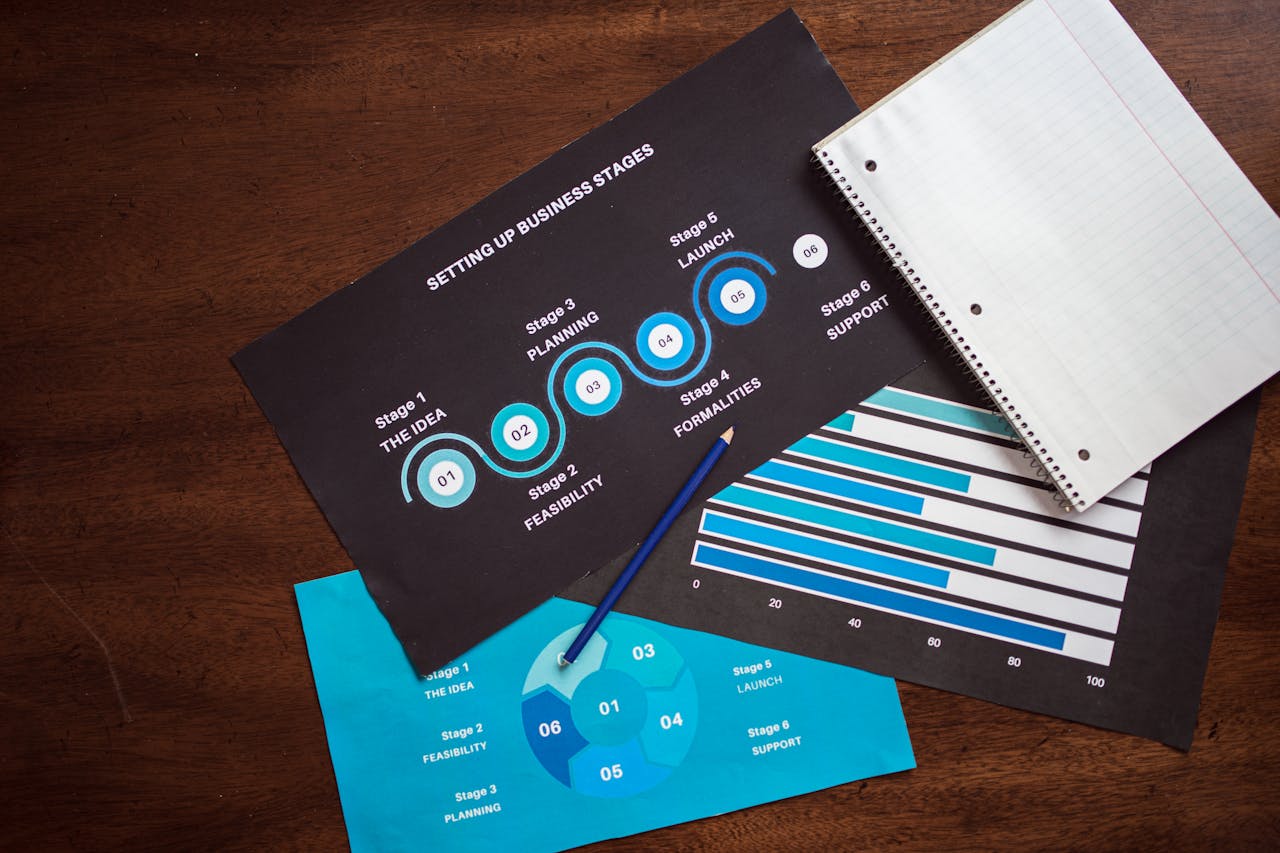Feasibility Study Course: Preparation, Analysis and Evaluation

| Date | Format | Duration | Fees (USD) | Register |
|---|---|---|---|---|
| 23 Feb - 27 Feb, 2026 | Live Online | 5 Days | $3350 | Register → |
| 06 Apr - 08 Apr, 2026 | Live Online | 3 Days | $2290 | Register → |
| 20 Sep - 24 Sep, 2026 | Live Online | 5 Days | $3350 | Register → |
| 02 Nov - 20 Nov, 2026 | Live Online | 15 Days | $10425 | Register → |
| Date | Venue | Duration | Fees (USD) | Register |
|---|---|---|---|---|
| 09 Mar - 11 Mar, 2026 | Dubai | 3 Days | $4415 | Register → |
| 28 Jun - 02 Jul, 2026 | Jeddah | 5 Days | $5475 | Register → |
| 21 Sep - 25 Sep, 2026 | Barcelona | 5 Days | $5905 | Register → |
| 07 Dec - 11 Dec, 2026 | Maldives | 5 Days | $5375 | Register → |
Did you know that carefully conducted feasibility studies help business owners, investors, and stakeholders avoid costly mistakes by identifying potential challenges, assessing resources, and evaluating the likelihood of success before launching any business venture?
Course Overview
The Feasibility Study Course Preparation, Analysis and Evaluation by Alpha Learning Centre is meticulously designed to equip professionals with essential skills in conducting comprehensive feasibility studies. This course focuses on how professionals can effectively analyse project viability through technical, financial, market, and operational assessments to ensure informed decision-making and project success.
Why Select This Training Course?
Selecting this Feasibility Study Course: Preparation, Analysis and Evaluation offers numerous advantages for professionals involved in project management and business analysis. Participants will gain advanced knowledge of feasibility frameworks, financial analysis techniques, and risk assessment methodologies. The course provides hands-on experience with industry-standard feasibility tools and real-world case studies, enabling attendees to optimise their feasibility study strategies effectively.
For organisations, investing in this training enhances overall project success rates and ensures better resource allocation. Research indicates that implementing comprehensive feasibility study frameworks results in enhanced ability to identify potential challenges, assess resources, and evaluate the likelihood of success before making significant investments, helping organisations avoid costly mistakes in business ventures, market expansions, or product development.
For individuals who complete this course, will benefit from enhanced career prospects as they become more valuable assets in their respective fields. Studies indicate that professionals with feasibility study expertise can significantly improve their career trajectory as management analysts, who often conduct feasibility studies, earn a median annual wage of £87,660 with a projected job growth of 11% from 2021 to 2031, much faster than the average for all occupations.
Transform your feasibility study capabilities – Register now for this critical advanced training programme!
Who is this Training Course for?
This course is ideal for:
- Project Managers
- Business Analysts
- Entrepreneurs
- Investment Analysts
- Strategic Planners & Consultants
- Engineers involved in project development
What are the Training Goals?
The objectives of this course of training will be to enable the professional to learn about major elements of a feasibility study, learn methodologies for extensive feasibility analysis, apply techniques for effective evaluation of the viability of a project, discover common pitfalls in feasibility studies and how to avoid them and develop skills in presenting feasibility findings to stakeholders.
How will this Training Course be Presented?
The Feasibility Study Course Preparation, Analysis and Evaluation delivers comprehensive, hands-on training through proven methodologies designed to maximise learning outcomes and practical skill development. Our expert instructors employ the following methods:
- Interactive Workshops
- Analysis of real case studies
- Group Discussions
- Hands-on Exercises
- Practical Assignments
Each delivery method is carefully integrated to ensure participants gain both theoretical knowledge and practical experience. The course structure promotes active engagement and real-world application, allowing participants to develop crucial analytical and strategic skills within a supportive learning environment.
Join us to experience this dynamic and effective learning approach – Register now to secure your place!
Course Syllabus
Module 1: Feasibility Study Fundamentals
- Defining project objectives and scope.
- Understanding the feasibility study lifecycle.
- Identifying stakeholders in the feasibility analysis.
- Establishing criteria for feasibility evaluation.
- Differentiating between types of feasibility.
- Scoping the study to business strategy.
- Introduction to feasibility frameworks.
- Preliminary analysis techniques.
- Ethical considerations in feasibility studies.
- Key questions to answer in a feasibility study.
Module 2: Project Requirements Analysis
- Detailed project requirements gathering.
- Techniques for requirement validation.
- Mapping requirements to project outcomes.
- Requirements for different feasibility dimensions.
- Stakeholder requirements elicitation.
- Requirement prioritisation methods.
- Managing conflicting requirements.
- Requirements documentation standards.
- Impact of requirements on feasibility.
- Requirements traceability in feasibility studies.
Module 3: Technical Feasibility
- Assessing technology readiness for the project.
- Resource availability and capability analysis.
- Technology integration strategies.
- Technical risk assessment and mitigation.
- Evaluation of alternative technical solutions.
- Technical due diligence processes.
- Prototyping and proof of concept.
- Technical constraints and their implications.
- Technical compliance and standards.
- Legacy system integration challenges.
- Technical documentation for feasibility.
Module 4: Economic and Financial Feasibility
- Advanced cost estimation techniques.
- Revenue forecasting methodologies.
- Investment appraisal methods (NPV, IRR, Payback).
- Financial risk analysis.
- Scenario analysis for financial outcomes.
- Budgeting for feasibility studies.
- Funding options and their feasibility.
- Economic impact assessment.
- Cash flow analysis for project sustainability.
- Cost-benefit analysis in depth.
- Sensitivity analysis for financial projections.
- Financial reporting in feasibility studies.
Module 5: Market Feasibility
- Market research methodologies.
- Customer needs analysis.
- Market segmentation and targeting.
- Competitive landscape analysis.
- Demand forecasting techniques.
- Pricing strategies evaluation.
- Market entry barriers and opportunities.
- Regulatory environment analysis.
- Market growth projections.
- Market validation through surveys and interviews.
Module 6: Operational Feasibility
- Operational process mapping.
- Resource allocation for project execution.
- Operations planning for new ventures.
- Capacity planning and scalability.
- Change management implications.
- Workflow and process redesign.
- Operational risk assessment.
- Training needs analysis.
- Operational compliance and safety.
- Evaluating operational sustainability.
Module 7: Legal and Regulatory Feasibility
- Navigating legal frameworks relevant to the project.
- Compliance with industry-specific regulations.
- Intellectual property considerations.
- Contractual obligations and feasibility.
- Risk of legal challenges and mitigation.
- Privacy and data protection laws.
- Licensing and permit requirements.
- Legal due diligence for projects.
- International legal considerations.
Module 8: Scheduling Feasibility
- Time management in project feasibility.
- Critical path analysis for project timelines.
- Resource scheduling for feasibility studies.
- Project phasing and milestones.
- Time risk analysis in feasibility.
- Scheduling software and tools.
- Adapting schedules to feasibility findings.
Module 9: Risk Management in Feasibility
- Identifying and classifying project risks.
- Risk quantification techniques.
- Developing risk mitigation strategies.
- Risk monitoring and control during feasibility.
- Scenario planning for risk management.
- Contingency planning in feasibility studies.
- Integrating risk management with project planning.
- Risk communication to stakeholders.
- Risk culture in feasibility assessments.
Module 10: Feasibility Report Writing
- Structuring a comprehensive feasibility report.
- Writing for clarity and decision-making impact.
- Executive summary composition.
- Data presentation and visualisation.
- Recommendations based on feasibility findings.
- Addressing feasibility report reviewers.
- Documenting assumptions and methodologies.
Training Impact
The impact of feasibility study training is evident through various real-world case studies and data, which demonstrate the effectiveness of structured programmes in enhancing project success rates and investment decisions.
Research indicates that professionals with strong feasibility study skills can help organisations make informed decisions by answering fundamental questions about project viability. According to industry experts, comprehensive feasibility studies that address the 20 key questions—including target market identification, problem-solution fit, unique value proposition, resource requirements, and financial projections—significantly enhance an organisation’s ability to avoid costly mistakes and identify viable business opportunities.
These case studies highlight the tangible benefits of implementing advanced feasibility study techniques:
- Improved project selection through rigorous viability assessment
- Enhanced resource allocation through accurate cost-benefit analysis
- Increased success rates in business ventures and projects
- Strengthened stakeholder confidence through data-driven decision-making
By investing in this advanced training, organisations can expect to see:
- Significant improvement in investment decision-making
- Improved ability to handle complex project evaluations
- Enhanced capabilities in risk assessment and mitigation
- Increased competitiveness through comprehensive feasibility strategies
Transform your career and organisational performance – Enrol now to master Feasibility Study techniques!
FAQs
4 simple ways to register with Alpha Learning Centre (ALC):
Website:
Log on to our website www.alphalearningcentre.com. Select the course you want from the list of categories or filter through the calendar options. Click the “Register” button in the filtered results or the “Manual Registration” option on the course page. Complete the form and click submit. Telephone:
Call +971 58 102 8628 or +44 7443 559 344 to register. E-mail Us:
Send your details to [email protected]. Mobile/WhatsApp:
You can call or message us on WhatsApp at +971 58 102 8628. Believe us; we are quick to respond to.
Yes, besides English, we do deliver courses in 17 different languages which includes Arabic, French, Portuguese, Spanish—to name a few.
Our course consultants on most subjects can cover about 3 to maximum 4 modules in a classroom training format. In a live online training format, we can only cover 2 to maximum 3 modules in a day.
Our public courses generally start around 9:30am and end by 4:30pm. There are 7 contact hours per day.
Our live online courses start around 9:30am and finish by 12:30pm. There are 3 contact hours per day. The course coordinator will confirm the Timezone during course confirmation.
A valid ALC ‘Certificate of Training’ will be awarded to each participant upon successfully completing the course. Accredited certificates from HRCI, PMI, CPD, IIBA are also available upon request and additional fees.








